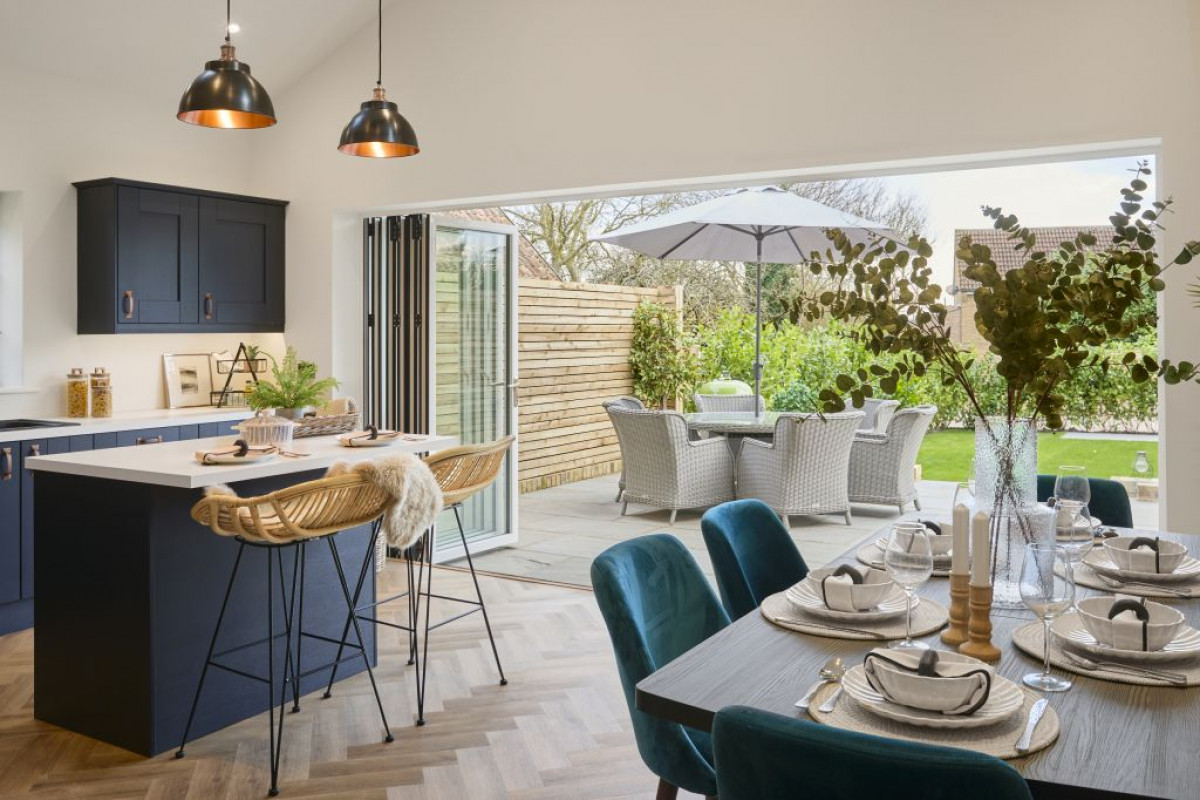Low-Maintenance Landscaping Tips For Busy Landlords

As a landlord, you want your rental property to be visually appealing to attract tenants, but you likely don't have time for high-maintenance landscaping. Tenants may neglect ornate gardens you've installed, and you don't want to waste money on plants that won't last. The solution is to focus on low-maintenance landscaping that looks tidy and welcoming, while requiring minimal upkeep.
These tips are designed to help landlords plan and design a rental property garden that enhances the home's appeal but doesn't become a burden. With strategic design choices and easy-care plants, you can have an attractive outdoor space that saves you time and money.
Reasons to Focus on Low-Maintenance Landscaping
There are several compelling reasons for landlords to prioritise low-maintenance landscaping. First, many renters are unlikely to properly maintain high-maintenance gardens that require frequent watering, weeding, pruning and other care, and viewing properties with this as a requirement can be off-putting. Installing an intricate garden with finicky plants essentially sets the landlord up for disappointment down the road.
As a landlord you want to maximise profits and minimise headaches. Time spent landscaping is time taken away from more important maintenance or finding new tenants, so a low-maintenance landscape saves you precious time and money better spent on other aspects of property management.
Finally, you don't need an ornate, lush garden to make your rental attractive to prospective tenants. Simple, clean landscaping can provide enough kerb appeal to bring in tenants without the upkeep requirements, and may even go in your favour if you're targeting busy families, professionals or students who likely don't have as much time to dedicate to gardening.
Apply Mulches and Barks
Mulching not only beautifies your garden but also serves as a natural barrier against weeds, effectively regulating soil temperature and moisture levels. By applying a layer or two of shredded bark or organic mulch around your plants and within garden beds, landlords can significantly reduce weed growth, ensuring the garden remains tidy with minimal effort. Additionally, mulches provide insulating properties that help stabilise soil temperatures, protecting the plant roots from extreme weather conditions.
Choose Native Plants
Native plants are adapted to your local climate and soil conditions, so they require less water, fertiliser and overall maintenance in order to thrive. Incorporating indigenous plants into your outdoor spaces not only benefits the environment but also offers aesthetic appeal and a sense of connection to the local ecosystem.
From vibrant wildflowers to sturdy trees, native species can add texture, colour and character to your landscape while simultaneously conserving resources and supporting native wildlife. By embracing the beauty and functionality of local flora, you can create a sustainable and thriving environment for both your garden and the surrounding ecosystem.
Install Drip Irrigation
Integrating drip irrigation systems into your rental garden offers a dual advantage: it enhances water efficiency while fostering robust plant vitality. Unlike conventional sprinklers, drip irrigation channels water precisely to the soil at plant bases which plants favour. But, from a landlord and tenant perspective, this way of watering saves a lot of time.
This precision watering method ensures minimal water wastage through evaporation or runoff, conserving significant amounts of water over time. By maintaining consistent soil moisture levels, irrigation systems keep your plants adequately hydrated without the risk of overwatering or underwatering, fostering optimal growth and development for your rental space.
Minimise High-Maintenance Lawns
Traditional lawns can be high maintenance, requiring regular mowing and watering to keep them looking neat and tidy. One of the most effective changes landlords can make to reduce the upkeep of a garden is to either remove the lawn or change what it's formed from.
So, by strategically limiting the size of lawn areas and incorporating low-maintenance alternatives, you can minimise labour-intensive tasks and create a more resilient and eco-friendly outdoor space. If you still want to retain the colour and softness of plants, opt for the likes of moss, clover or thyme lawns which are still colourful but don't grow at the same rate as grass.
Choose Low-Maintenance Materials
Incorporate hardscaping like paths, patios, benches and gravel gardens to reduce the amount of planted area requiring maintenance. Hardscapes add interest while allowing you to minimise high-maintenance lawn and beds. When selecting materials, look for low-maintenance options that hold up over time without a lot of upkeep. Composite decking, for example, lasts longer than wood without needing frequent staining or sealing. Pea gravel is another good material that doesn't need weeding or mowing.
Rock and gravel gardens are essentially zero-maintenance while providing visual interest and texture. Landlords can use gravel, stones, boulders and drought-tolerant plants like sedum, agave and ornamental grasses that thrive in these conditions.
Remember to De-Personalise
When planning rental property landscaping, it's best to avoid highly ornate or personalised garden themes and designs. Today's tenant may love an elaborate rose garden, but the next tenant might not, resulting in you wasting time and money constantly changing the layout and design.
Keep in mind that plants and garden features may not last as long as you intend them to. Tenants come and go, and it's important not to over-invest in landscaping that is meant to match one person's taste. Instead, aim for a simple, classic garden design that looks tidy but doesn't have too many personalised frills. The goal is to create a basic landscape with curb appeal that can be adapted over time as tenants change.
A Happy Balance of Responsibility and Expectation
From a landlord's viewpoint, managing rental property landscaping presents a tricky situation with limited control. It's crucial for the landscaping to appear appealing to attract tenants, please the neighbours and uphold a certain standard. However, overspending is a concern as tenants often neglect landscaping upkeep. Additionally, there's the question of who is responsible for tasks like lawn mowing, hedge trimming and plant maintenance.
While you'll need to address these issues independently and ensure tenants fulfil their obligations, you can benefit everyone involved by implementing low-maintenance landscaping designs for your rental properties. Ultimately, this results in a more attractive lawn that keeps tenants, neighbours and landlords content.
Image is from a beautiful kitchen opening out in to the garden. Property available March 2023. For the full listing, please click here.

Why Tenant Referencing Matters More Than Ever When Letting a Property
19.02.2026A practical landlord guide to tenant referencing, Section 21 changes, court delays, and why rent guarantee insurance adds peace of mind.
.png)
Sell or Let Your Property Yourself – Why More UK Homeowners Are Choosing to Go Online
03.02.2026Selling or letting a property no longer has to mean handing over thousands of pounds to a traditional estate agent.

Why 2026 Could Be the Smartest Year Yet to Grow Your Rental Portfolio
15.01.2026Thinking of growing your rental portfolio this year? You're not alone. New data shows that rental yields are climbing across the UK, with smart landlords expanding through limited companies, targeting high-performing regions, and refinancing to reinvest.

Why Stay in the PRS? A DIY Landlord’s Guide to Riding the Market Wisely
30.10.2025If you're a landlord feeling under pressure from new legislation, rising costs, or uncertainty around mortgage rates, then you're not alone. But before you hang up your keys, take a breath. The Private Rented Sector (PRS) is still a viable-and profitable-place to be. Here’s why some landlords are choosing to stay, what the data says about yields and mortgage pressures, and how DIY landlords can make it work.

The Renters’ Rights Act: What Landlords Need to Know Now
30.10.2025The Renters’ Rights Bill is now law; and landlords need to be ready. From the end of Section 21 evictions to tougher property standards and new compliance rules, the changes are significant. If you're a landlord or thinking about selling a tenanted property, this is your heads-up to get ahead of the curve. Read our updated guide to learn what’s coming and what you can do now.

Making Tax Digital: What Landlords Need to Know in 2025
01.10.2025HMRC recovered a record £107 million from landlords in 2024/25 - a stark warning for those behind on tax compliance. With Making Tax Digital (for Income Tax) landing in April 2026, now’s the time to get your digital books in order. This guide explains who’ll be affected, what you’ll need to do, and how to claim every allowable expense without overstepping legal lines.









